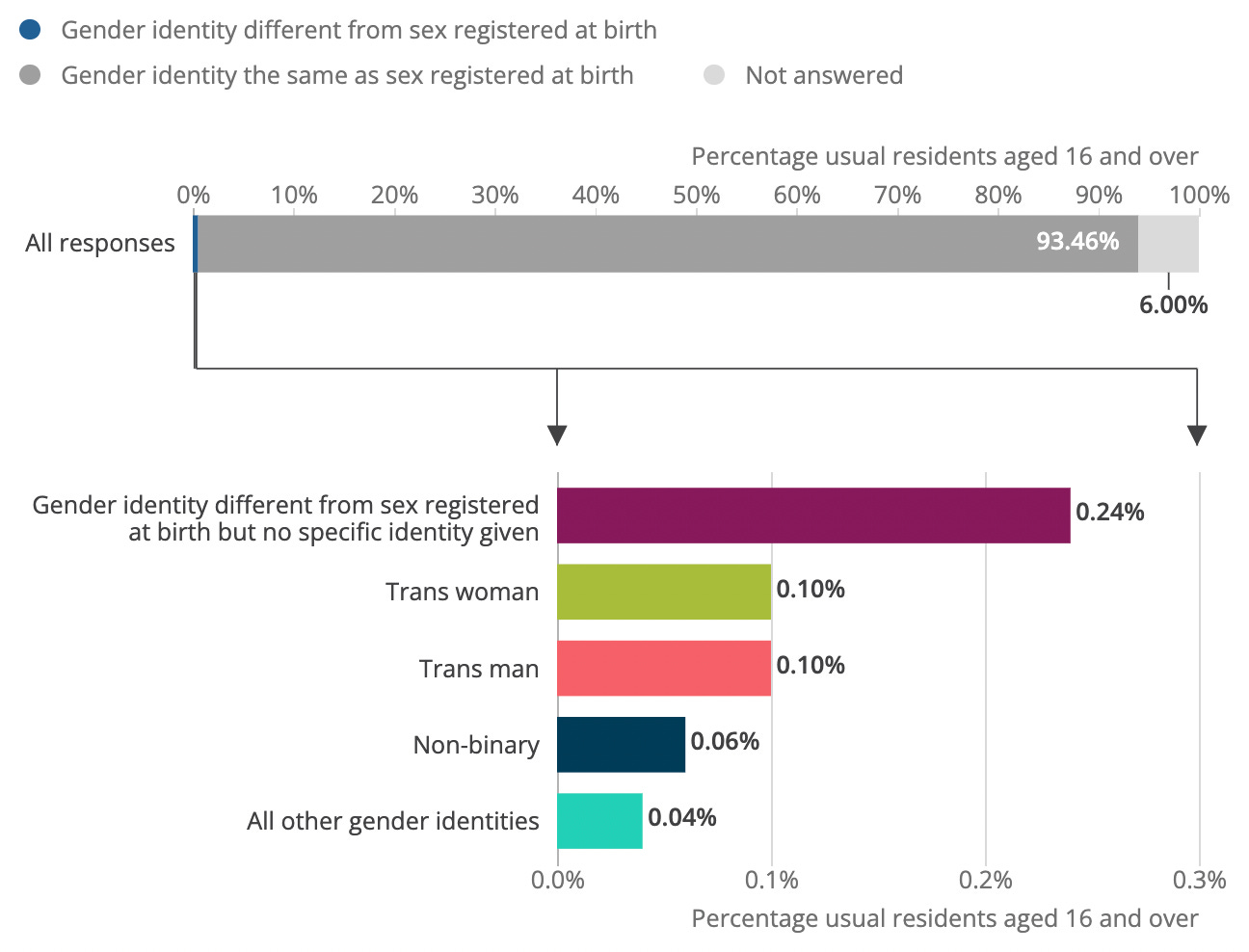How many people in England have a different gender identity?
The UK’s 2021 census was the very first to include a question on gender identity. In England and Wales, the ONS had originally proposed to ask a single sex question for which respondents would have been advised to respond in terms of their gender identity (e.g. “male” if they were transgender man). However, a group of academics objected (quite rightly) and the questionnaire was changed.
In the final version, two questions were asked. First: “What is you sex?”, with respondents being advised to “use the sex recorded on your birth certificate or gender recognition certificate”. Second: “Is the gender you identify with the same as your sex registered at birth?”. Here there were two possible answers: “yes” and “no”. Those who answered “no” had the option to write in their preferred gender identity (e.g. “transgender man”). Results for England and Wales are shown below.
As you can see, 93.46% of people said their gender identity was the same as their sex registered at birth, while only 0.54% of people said it was different. The remaining 6% did not answer the question. Unlike most questions in the census, the gender identity question was voluntary.
The fact that it was voluntary presents an obvious problem, however. More than ten times as many people declined to answer than said they their gender identity is different from their sex at birth (6% versus 0.54%). Since we don’t know how many of those people would have said their gender identity was different if they had answered the question, there’s huge uncertainty around the percentage of the population with a different gender identity.
Usually, the percentage of people who don’t answer a survey question is small relative to the percentages in the response categories of interest. For example, if 6% of people decline to answer the question, “Do you prefer Labour or the Conservatives?” that doesn’t particularly matter because 6% is going to be small relative to the percentages in the two other response categories; it’s certainly not going to be ten times bigger.





